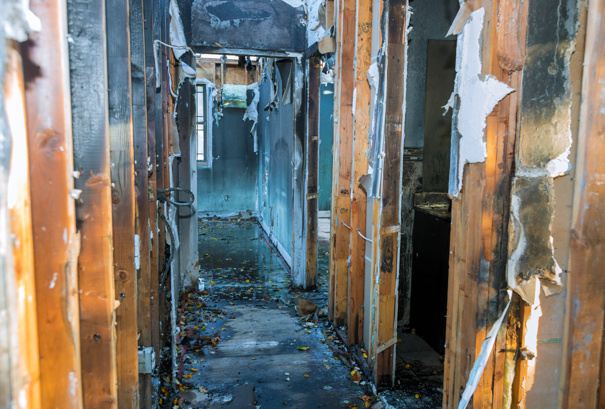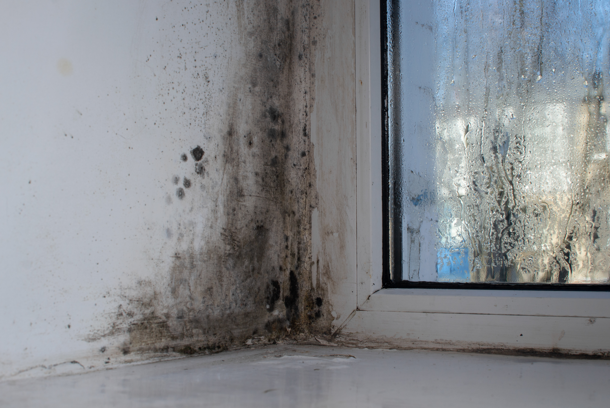Hidden Dangers of Mold and Mycotoxins After a House Fire
Addressing Mold Growth and Health Risks Following Fire Damage
When a house fire occurs, the immediate focus is often on extinguishing the flames and ensuring the safety of occupants. However, after the fire is extinguished, a secondary hazard that many may overlook is the risk of mold and mycotoxins. Fires often leave behind a combination of water damage from firefighting efforts and smoke and soot residue, creating the perfect environment for mold to grow and thrive. If not addressed promptly, this secondary issue can lead to long-term health risks and costly damage.
The aftermath of a house fire is more than just the visible destruction. The combination of fire, water, and smoke residue creates conditions where mold can flourish. Mold spores, which are present almost everywhere, can take hold on damp surfaces and begin growing within 24 to 48 hours. When mold produces toxic substances known as mycotoxins, it can present serious health risks to those exposed.
Key Factors Contributing to Mold Growth After a Fire
1. Water Damage from Firefighting Efforts
When a fire is extinguished, large amounts of water are often used to douse the flames. This water can saturate building materials such as wood, drywall, and insulation, leaving them damp and susceptible to mold growth. If the structure is not dried thoroughly and quickly, mold spores can settle into these damp areas and start to grow.
2. Soot and Smoke Deposition
After a fire, soot and smoke residue settle on various surfaces throughout the affected area. Smoke particles provide a nutrient-rich surface where mold spores can land and colonize. The combination of dampness and soot creates an ideal environment for mold growth to occur, compounding the risk of mycotoxin exposure.
3. Delayed Response in Restoration Efforts
Mold grows rapidly in moist environments, and delays in drying out and restoring the property can exacerbate the problem. Many homeowners may not realize the urgency of addressing mold after a fire, inadvertently allowing mold colonies to spread.
Health Risks of Mold and Mycotoxins
Mold exposure, particularly when it involves mycotoxins, can pose significant health risks to occupants. Common health issues associated with mold and mycotoxin exposure include:
Respiratory Problems: Mold spores and mycotoxins can irritate the respiratory system, leading to coughing, wheezing, and difficulty breathing.
Allergic Reactions: Mold exposure may trigger allergic reactions such as sneezing, itchy eyes, and skin rashes.
Chronic Conditions: Individuals with pre-existing conditions like asthma, allergies, or weakened immune systems are especially vulnerable to the effects of mold and mycotoxins.
Neurological Symptoms: Prolonged exposure to mycotoxins has been linked to headaches, fatigue, memory problems, and other neurological issues.
How MSCPA Can Help
We recognize the serious challenges that mold and mycotoxins pose after a fire, not only to property but also to human health. Our expertise extends beyond the medical field to assist law firms and their clients in understanding the link between mold and health issues, particularly in legal cases where causality needs to be established.
Here’s how MSCPA can assist:
Consultation and Investigation: We begin by consulting with clients and conducting a thorough investigation into the circumstances surrounding mold exposure. This includes understanding the causes of symptoms and linking them to the exposure event.
Causality and Association: MSCPA specializes in establishing the causal relationship between mold exposure and health symptoms, a critical component in legal cases involving mold and mycotoxins.
Education and Expert Testimony: Our team educates clients, attorneys, and judges about the health effects of mold and mycotoxins. We provide clear, evidence-based testimony to support cases where justice is sought for those affected by mold exposure.
Partnering with MSCPA for Healthier Futures
We believe that individuals suffering from mold and mycotoxin exposure deserve justice and proper representation. With our deep understanding of the subject, we are always ready to offer our expertise and help those impacted by this invisible yet serious hazard.
If you are a medical professional, attorney, or patient seeking expertise in environmental exposures, contact MSCPA today. Together, we can build a healthier, more informed future. For more information call 972-533-4494, or contact us online to learn how we can support your needs.







